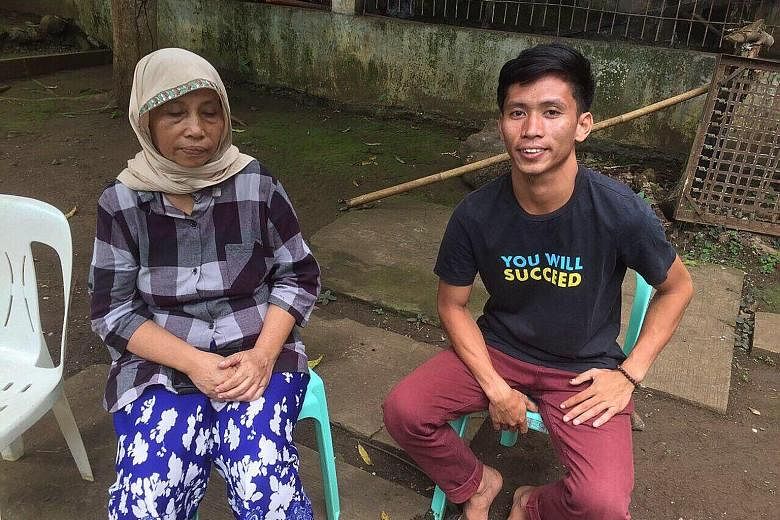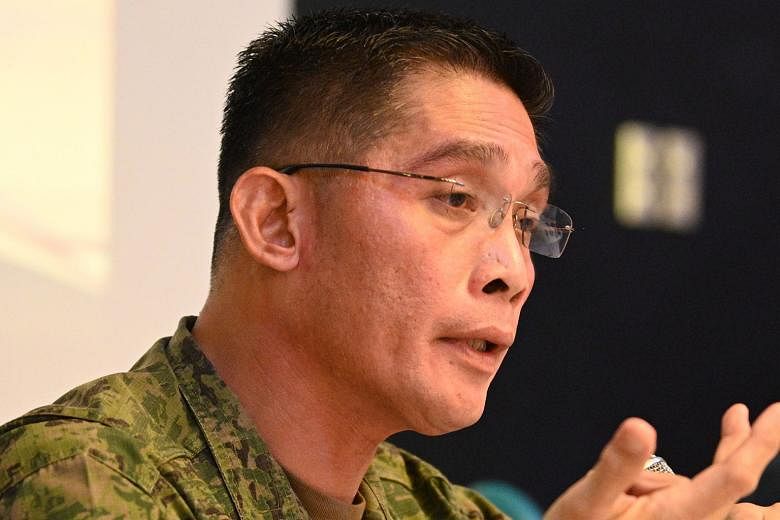Security officials confirmed yesterday the first-ever case of a suicide attack carried out by a Filipino, in what they said marked an escalation in the deadly tactics used by militants linked to the Islamic State in Iraq and Syria (ISIS).
In a news briefing, military spokesman Brigadier-General Edgard Arevalo said Norman Lasuca, 23, set off one of two bombs that exploded inside a temporary camp of a special army counter-terrorism unit in Indanan town, on Jolo island in Sulu province, on June 28.
Three soldiers who were manning the camp's gate were killed, along with three civilians who were nearby.
Lasuca and another attacker had explosives strapped around their torsos. Both died.
Tissue samples taken for DNA testing confirmed that Lasuca was the son of a woman who belonged to a Filipino-Muslim ethnic group known as the "Tausug".
Colonel Bernard Banac, the police spokesman, said in the same briefing that the identity of the other militant could not be ascertained, as no kin had come forward to claim his remains.
ISIS had claimed responsibility for the Sulu attack, but Col Banac said it was "locally initiated".
He tagged the Abu Sayyaf, founded in the 1990s with seed money from Osama bin Laden's Al-Qaeda network, as behind it. "There is no evidence linking ISIS," he said.
Col Arevalo said "the most significant implication now that we have a Filipino suicide bomber… is that this should open a new mindset that we have a different security environment". "Our enemies are levelling up," he said.
There have been two other instances of suicide bombings in the Philippines, but both involved militants from abroad.
In January this year, an Indonesian couple, with help from a faction of the Abu Sayyaf, attacked Jolo's Roman Catholic cathedral, killing 23 people and wounding at least 100.
Before that, in July last year, a Moroccan set off bombs hidden inside a van he drove to an army checkpoint on Basilan island, near Jolo.
"Suicide bombing will now be a new trend of terrorist attacks in the Philippines… It will now change the nature of terrorist threats in the Philippines," Mr Rommel Banlaoi, head of the Philippine Institute for Peace, Violence and Terrorism Research, told The Straits Times.
He said a new crop of younger, more ideologically driven militants is emerging.
"These are millennials. They are influenced by a lot of indoctrination via social media. Their level of frustration is much higher compared with the old ones'," he said.
Mr Banlaoi disclosed that an Egyptian couple, both veterans of the fighting in Syria and Afghanistan, are now in Sulu to prepare for more suicide attacks in the Philippines' restive south.
"They are here to really carry out the instruction of ISIS to conduct intermittent bombing operations in the Philippines and to encourage the locals to conduct suicide bombings as their most effective weapons for (holy war)," he said.


